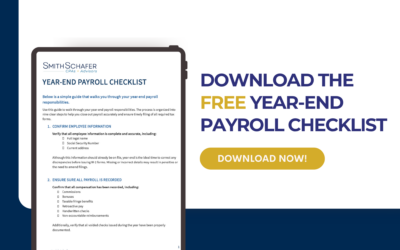How much is your business worth and what are your plans for the long run? These are questions every business owner will face at some point. Business owners invest many years of time, energy, and personal funds to build a business. Planning for your exit is often one of the hardest things a business owner must do. Contemplating the business you built or help to develop without you is complex, difficult and emotionally challenging. When succession planning is executed properly, it allows for the orderly transition of management while protecting the exiting owner professionally, emotionally and financially.
What should business owners do to prepare for business succession and how can they maximize the value of their business?
- The first step is determining a realistic value of the business. This is accomplished by having a valuation performed on an as-is, on-going basis of the business. Some owners may want to determine the annual value of the business for legal reasons, such as a buy/sell agreement, and others may want to be updated on an as-desired basis in order to keep track of the value of their estate.
- The simplest and least expensive way to determine a value of the business is to engage a valuation expert to perform a Calculation of Value engagement. This calculates the value using the same general methodology of a more comprehensive Opinion of Value engagement, without the increased reporting requirements and therefore, without the increased fees for the service.
- Another benefit of the Calculation of Value engagement is the professional’s assessment of the main drivers of value for the business. This may help the owner determine ways to increase the value of the business before they decide to transfer the ownership. The business owners may also use the information to help determine the best type of transaction for their economic needs.
Business Succession
- Business succession transactions may be accomplished by gifting the ownership to family, key employees, or other individuals. Gifting is most common with family successions.
- The business may be sold to employees, third parties, or may be combined with some amount of gifting. This type of transfer of ownership will be approximately the value determined when the business was valued as an as-is, on-going basis.
- Businesses may be sold to a strategic buyer (someone already in the industry). A transaction with a strategic buyer usually occurs at a value higher than the amount determined with the traditional Calculation of Value engagement. The buyer may incorporate the revenue streams into their existing business and will be able to achieve increased profit and cash flow by consolidating specific overhead expenses. Example: Two facilities may not be needed and common business functions, such as administrative may be consolidated and the costs may be absorbed by the increased revenue. A specific Calculation of Value engagement may be performed to determine an estimated value of the business if it is sold to a strategic buyer.
CONTACT US
Determining the value of your business and incorporating this information into your overall financial, retirement, and estate planning, will help you manage the wealth of your business. To help business owners through this process, Smith Schafer offers business valuation and succession planning services designed to help businesses create and execute a successful transition strategy.
Smith Schafer works with companies, in multiple industries, to uncover the true value of their companies’ tangible and intangible assets. Whether you need help creating a succession plan or conducting a business valuation, our professionals can guide you.



